Sonoran Center Trainees Present Disability Research and Outreach Activities at Annual Symposium
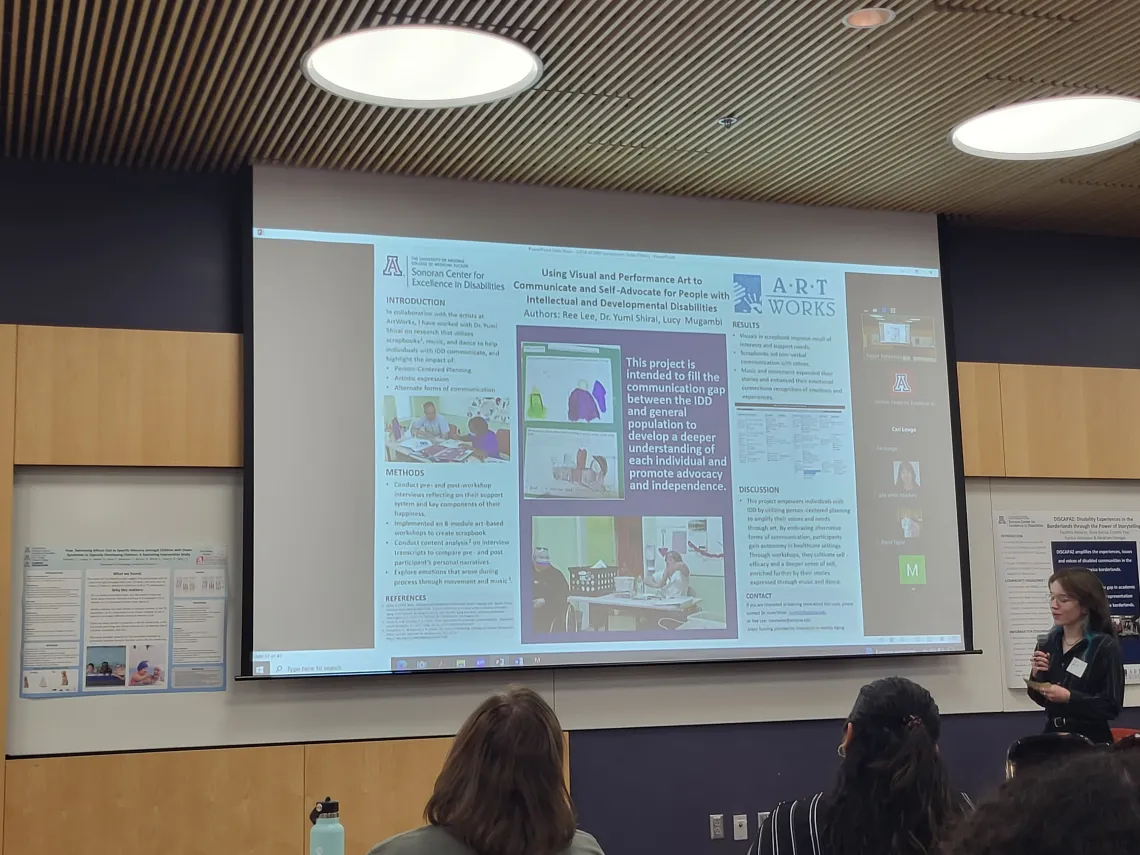
On Monday, April 22, 2024, UArizona Sonoran Center for Excellence in Disabilities trainees had the opportunity to share their accomplishments at the annual Trainee Symposium. Colleagues, friends, and Sonoran Center staff were in attendance as over 20 trainees presented their work. This year’s cohort included students from the Undergraduate Certificate in Developmental Disabilities, the Disability Policy Fellowship, the Diversity Fellowship, and the Interdisciplinary Approach to Disability Internship.
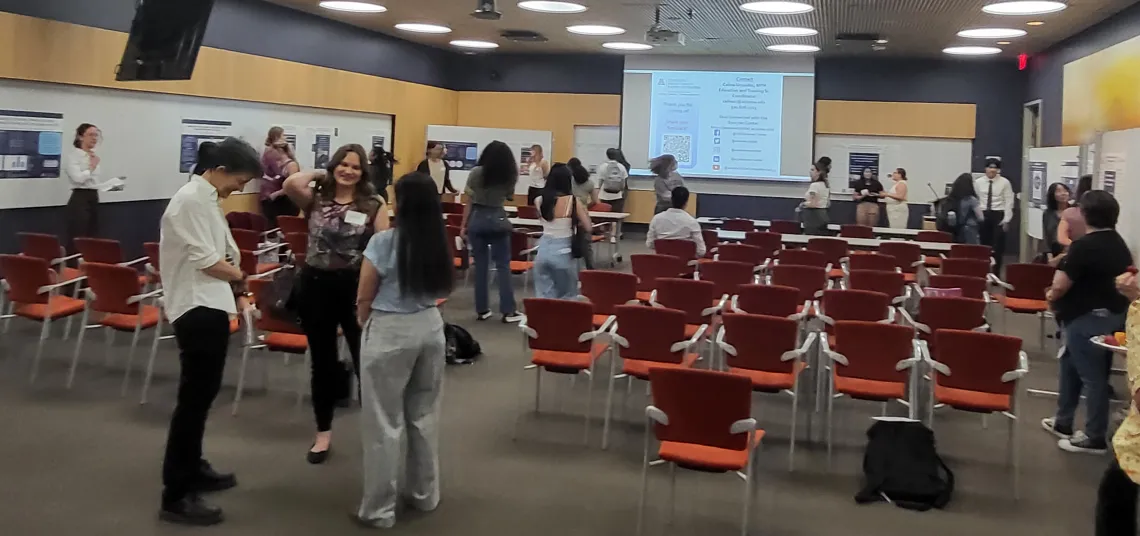
Presentations covered a wide range of topics related to disability, including how to make vaccines accessible to people with intellectual and developmental disabilities, the use of visual and performance art as a tool of disability self-advocacy, treatment of chronic illness patients in emergency departments, and ADHD’s effect on sleep patterns, among others. Presentations were arranged in four categories: advocacy & systemic change, community engagement and inclusion, research in neurodiverse populations, and healthcare access and equity.
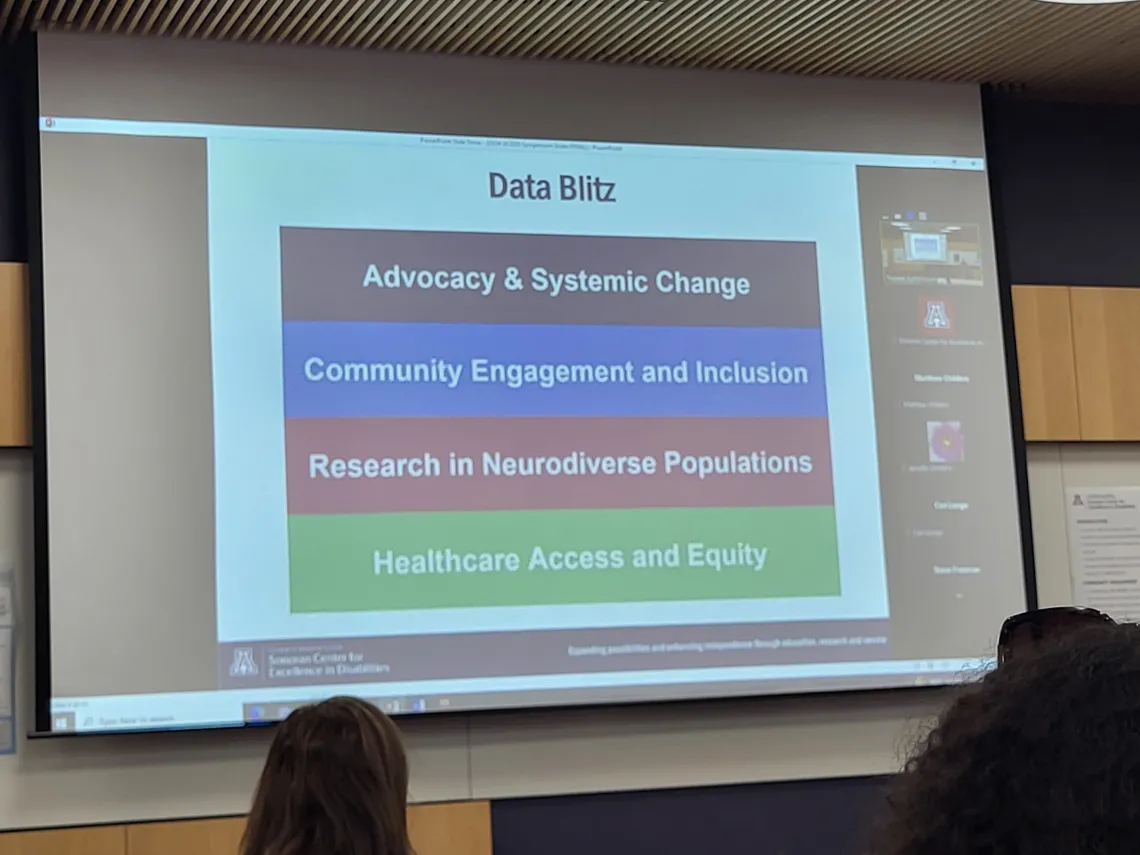
Beginning in 2019, the Symposium was created to serve as the culmination of the Center’s trainee programs. It is a way for the trainees to demonstrate to the community the knowledge and experience they acquired over the course of their program. While the symposium was held virtually from 2020 - 2022, it returned to in-person last year and has become a staple of the program.

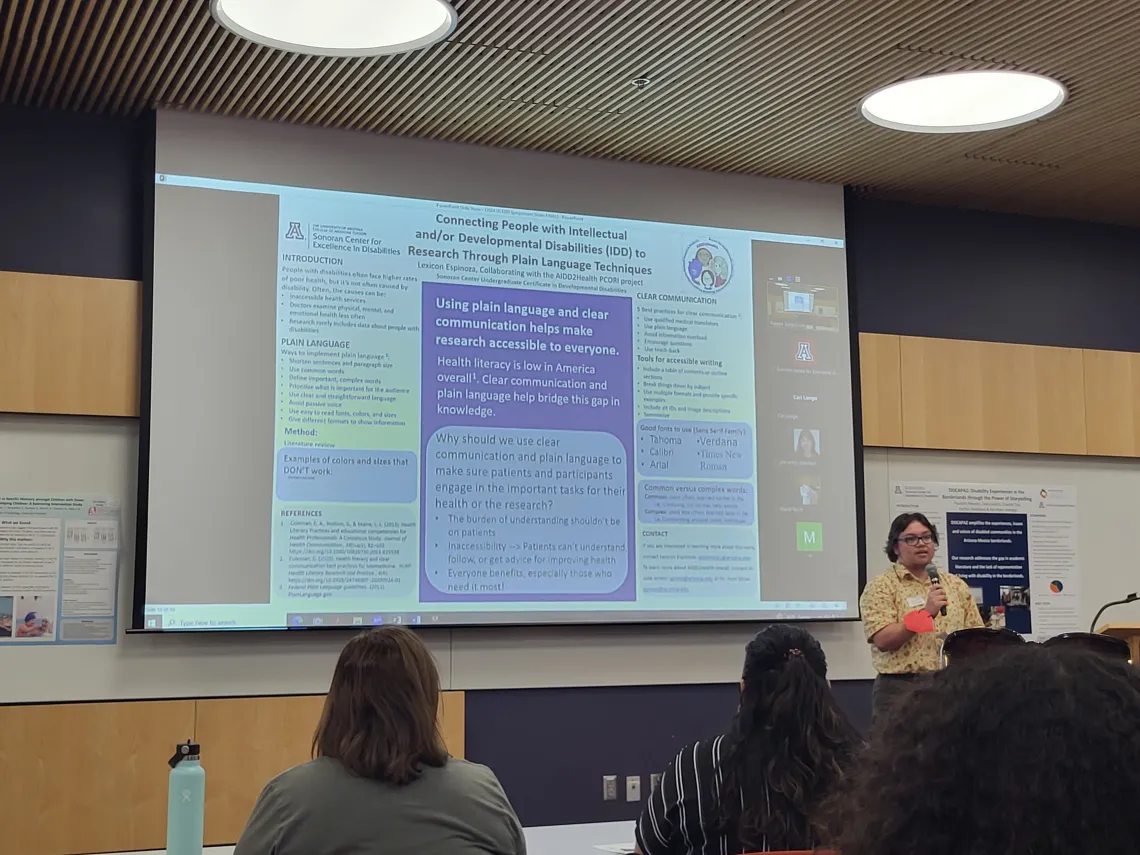
Each student created a poster as a visual aid for their presentation. The posters detailed the trainees’ methodology and conclusions. The walls of the symposium were lined with these posters. After the presentations, audience members could view the posters and ask questions of the presenters.
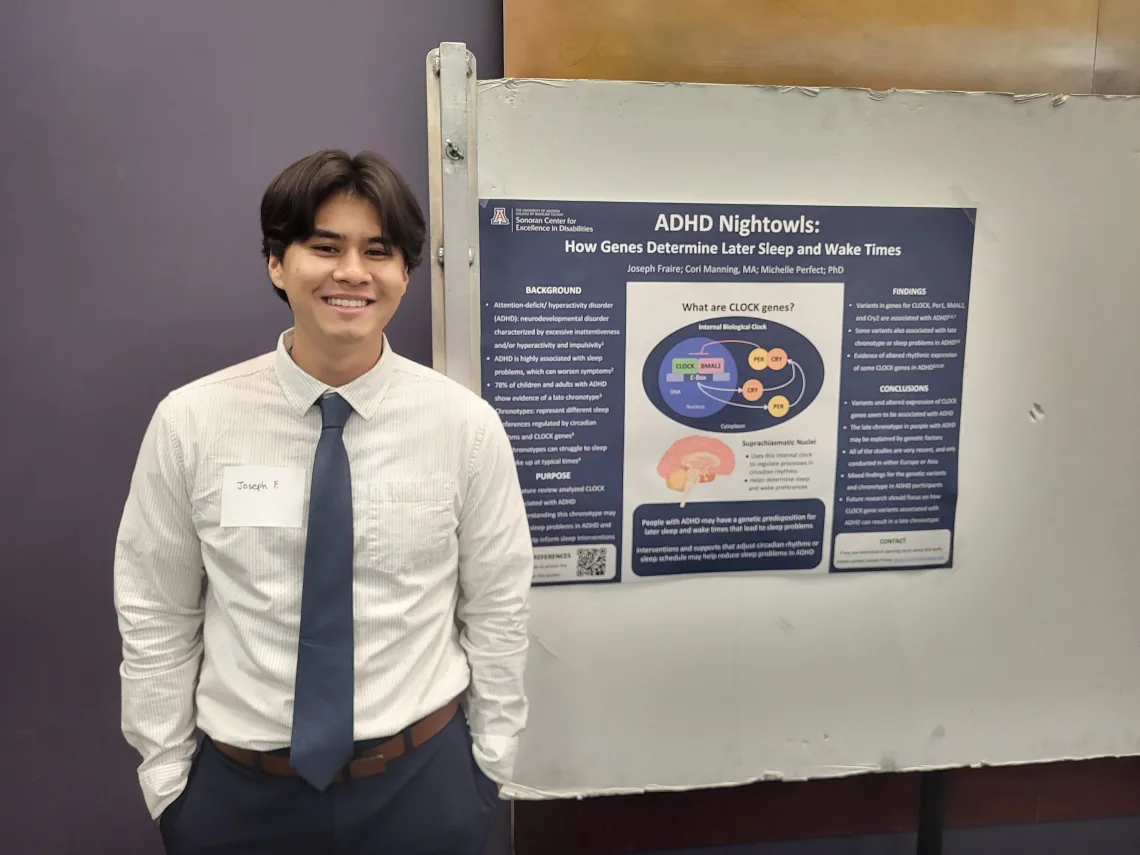
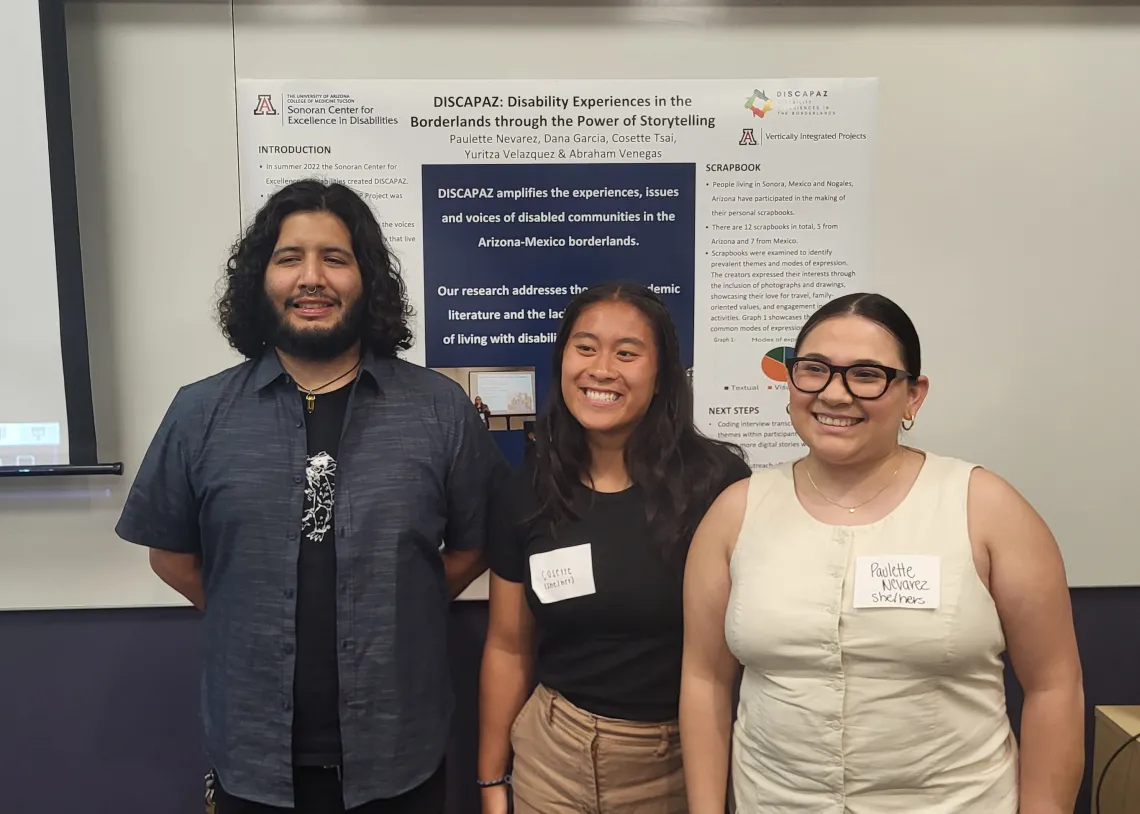
You can view accessible digital versions of the posters here.
